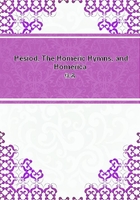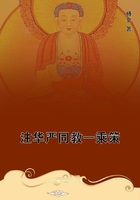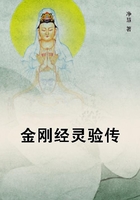Crowds flocked to pray at his tomb, and it was alleged that wonderful cures were being wrought by his intercession. One of the earliest and most striking of these miracles was investigated by the Archbishop of Paris and was proved to be without foundation, but others still more remarkable were broadcast by the party, with the result that hosts of invalids were brought from all parts of France in the hope of procuring recovery. Many, especially women, went into ecstasies and violent convulsions round the tomb, and while in this state they denounced the Pope, the bishops, and in a word all the adversaries of Jansenism. Owing to the unseemly and at times indecent scenes that took place the cemetery was closed by the civil authorities (1732), but the /Convulsionnaires/, as they were called, claimed that similar miracles were wrought in private houses, in which they assembled to pray, and to which clay taken from the tomb of the Deacon of Paris had been brought. The great body of the people ridiculed the extravagances of the sect, and many of the moderate Jansenists condemned the /Convulsionnaires/ in unsparing terms. Instead of doing Jansenism any good these so-called miracles, utterly unworthy as they were of divine wisdom and holiness, served only to injure its cause, and indeed to injure the Christian religion generally, by placing a good weapon in the hands of its rationalist adversaries.
But even though heaven had not declared in favour of the Jansenists the Parliament of Paris determined to protect them. It defended bishops who refused to accept the Bull /Unigenitus/ against the Pope, tried to prevent the orthodox bishops from suspending appellant priests, and forbade the exclusion of appellant laymen from the sacraments. The Parliament of Paris condemned the action of the clergy in refusing the last sacraments to the dying unless they could prove they had made their confession to an approved priest. Though the privy council annulled this condemnation Parliament stood by its decision, and challenged the authority of the Archbishop of Paris by punishing priests who refused the sacraments (1749-52). The bishops appealed to the king to defend the liberty of the Church, but the Parliament asserted its jurisdiction by depriving the Archbishop of Paris of his temporalities and by endeavouring to have him cited before the civil courts. Louis XIV. annulled the sentence of the Parliament, and banished some of the more violent of its members from the capital (1753). They were, however, soon recalled, and a royal mandate was issued enforcing silence on both parties. For infringing this order de Beaumont, Archbishop of Paris, was banished from his See, and several other bishops and priests were summoned before the legal tribunals.
The Assembly of the Clergy in 1755 petitioned the king to give more freedom to the Church, and to restore the exiled Archbishop of Paris to his See. A commission was established to examine the whole question of the refusal of the sacraments, and as the Commission could not arrive at any decision, the case was submitted to Benedict XIV., who decided that those who were public and notorious opponents of the Bull, /Unigenitus/, should be treated as public sinners and should be excluded from the sacraments (1756). The Parliament of Paris and some of the provincial parliaments forbade the publication of the papal decision, but a royal order was issued commanding the universal acceptance of the Bull, /Unigenitus/, even though it might not be regarded as an irreformable rule of faith. According to this mandate the regulation for allowing or refusing the administrations of the sacraments was a matter to be determined by the bishops, though any person who considered himself aggrieved by their action might appeal against the abuse of ecclesiastical power. This decree was registered by the Parliament (1757), whereupon the Archbishop of Paris was allowed to return. From that time Jansenism declined rapidly in France, but the followers of the sect united with the Gallicans of the Parliament to enslave the Church, and with the Rationalists to procure the suppression of the Jesuits, whom they regarded as their most powerful opponents.
Many of the Jansenists fled to Holland, where the Gallicans were only too willing to welcome such rebels against Rome. The old Catholic hierarchy in Holland had been overthrown, and the Pope was obliged to appoint vicars apostolic to attend to the wants of the scattered Catholic communities. One of these appointed in 1688 was an Oratorian, and as such very partial to Quesnel and the Jansenists. Owing to his public alliance with the sect he was suspended from office in 1702 and deposed in 1704, but not before he had given Jansenism a great impetus in Holland. About seventy parishes and about eighty priests refused to recognise his successor, and went over to the Jansenist party. In 1723a body of priests calling themselves the Chapter of Utrecht elected Steenhoven as Archbishop of Utrecht, and a suspended bishop named Varlet, belonging formerly to the Society for Foreign Missions, consecrated him against the protests of the Pope. Supported by the Calvinist government the new archbishop maintained himself at Utrecht till his death, when he was succeeded by others holding similar views.
Later on the Bishoprics of Haarlem (1742) and of Deventer were established as suffragan Sees to Utrecht. The Catholics of Holland refused to recognise these bishoprics as did also the Pope, whose only reply to their overtures was a sentence of excommunication and interdict. The Jansenist body of Holland, numbering at present about six thousand, have maintained their separate ecclesiastical organisation until the present day. They resisted the establishment of the hierarchy in Holland (1853), opposed the definition of Papal Infallibility, and allied themselves definitely with the old Catholic movement in Germany.
----------














